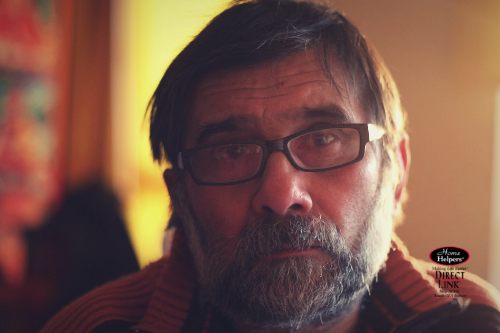A 74 year-old man had a loving wife, a grown son, a beautiful adult daughter, and a handsome grandson, yet he was depressed. No one realized how troubled the man was, as he appeared to be his same-old, grumpy self, hunkered-down in his easy chair watching old movies on TV and grumbling about stupid commercials. He did not venture out much anymore.
One brisk December day in 2010, three days after his daughter’s birthday, he made the decision to end his life. He took his pistol out of the case, put the barrel to his head and pulled the trigger. There was no note and he had not spoken of suicide before. He was just gone…the end.
However, it was not the end for his family. They each grieved their loss individually, but none more so than his daughter. They had endured a tumultuous relationship at times, but she truly loved her Father. I know to this day, she continues to grieve the loss and will never forget the horrific tragedy that haunts her, along with the painful unanswered question: “Why?”
According to the American Foundation for Suicide Prevention, suicide is the 10th leading cause of death in the United States.
The Washington Post reports, “White men 85 and older are more likely to commit suicide than Americans in any other age group — taking their lives at four times the rate of the general population. About one in five suicide attempts in the elderly ends in death, and firearms are the most common cause. The frailty of some seniors means they may be less likely to survive suicide attempts: A young person might survive an overdose that proves lethal in an older adult, said James Ellison, director of the geriatric psychiatry program at McLean Hospital in Belmont, Mass.”
The Centers for Disease Control and Prevention shared these 2012 statistics: 51 of every 100,000 white men age 85 and older committed suicide. Of the 40,600 Americans who took their own lives in 2012, 6,648 were older than 65.” In 2014, more than 740 seniors in Florida aged 65+, committed suicide, so unfortunately, suicide rates have increased by as much as 30%, as nearly 45,000 lives were lost to suicide in 2016 alone.
The National Alliance on Mental Illness [NAMI] has outlined these warning signs and ways you can extend suicide prevention efforts to include seniors…especially senior men.
Warning Signs
If the man’s family described above had been aware of some of the warning signs of depression and had entertained the notion he might be suicidal, the outcome may have been much different. Pay close attention to seniors if they exhibit these potentially suicidal traits:
- Avoidance of family, friends and social activities
- Difficulty understanding and relating to people
- Changes in sleeping habits and energy levels
- Changes in eating habits, such as increased hunger or lack of appetite
- Excessive worrying or fear
- Feeling extremely sad or low
- Confused thinking, or problems concentrating and learning
- Extreme mood changes
- Prolonged or strong feelings of irritability or anger
- Abuse of substances like alcohol or drugs
- Multiple physical ailments without obvious causes (such as headaches, stomach aches, vague and ongoing “aches and pains”)
- Thoughts of suicide
- Inability to perform daily activities or handle problems and stress*
What You Can Do to Help
- Remove means such as guns, knives or stock-piled pills
- Calmly ask simple and direct questions, such as “Can I help you call your psychiatrist?” rather than, “Would you rather I call your psychiatrist, your therapist or your case manager?”
- Talk openly and honestly about suicide. Don’t be afraid to ask questions such as “Are you having thoughts of suicide?” or “Do you have a plan for how you would kill yourself?”
- Ask what you can do to help
- Don’t argue, threaten or raise your voice
- Don’t debate whether suicide is right or wrong
- If your loved one asks for something, provide it, as long as the request is safe and reasonable
- If you are nervous, try not to fidget or pace
- If your loved one is having hallucinations or delusions, be gentle and sympathetic, but do not get in an argument about whether the delusions or hallucinations are real
September is National Suicide Awareness Month, and September 10th is World Suicide Prevention Day. If you know a troubled senior or one struggling with depression, and you recognize one or more of the warning signs outlined above, I am happy to assess the situation in a FREE consultation with you and your loved one at your convenience. There is no obligation to enlist our services, and it is a great opportunity to learn more about beneficial resources in our area. It will also enlighten you to discover the many ways a compassionate caregiver can provide companionship and assist in ways that will lift their spirits, make them feel safe, loved, cared for, and less alone, thereby reducing levels of depression and thoughts of suicide.
Home Helpers® is honored to have received the Provider of Choice 2017 & 2018 awards from Home Care Pulse, and we proudly serve male and female seniors in Clearwater, Dunedin, Palm Harbor, Safety Harbor, Tarpon Springs, Holiday, New Port Richey, Trinity, Port Richey, Hudson and surrounding areas. Home Helpers®…Making Life Easier℠ (727) 240-3059
Sources:
National Alliance on Mental Illness [NAMI]

